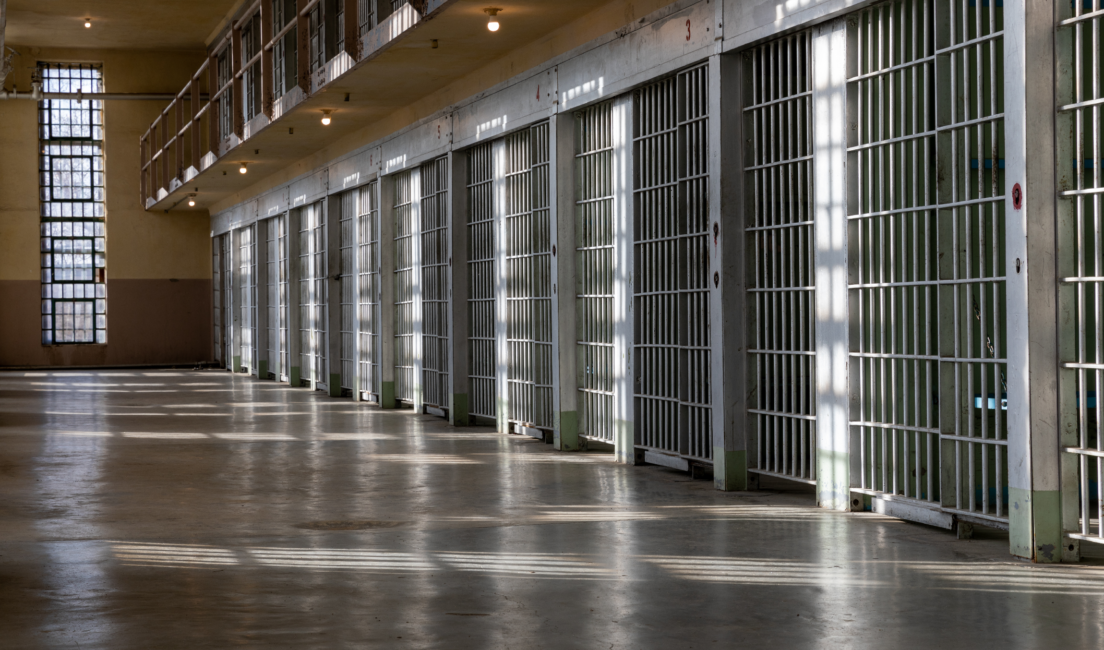We value our rights, laws, and institutions. We want to see them work well, during this crisis and after it ends. How to balance all of this in a pandemic raises tough questions.
What does justice look like during a pandemic?

No exaggeration – I think I’ve probably read at least a hundred articles about the effects of COVID-19 on the economy. I feel like I now know an awful lot about the impact of the virus on healthcare. But until my colleagues brought it to my attention this week, I’m embarrassed to say that I’d given very little thought to a subject that is far too significant to ignore: how the pandemic is affecting our justice system.
Empty courtrooms
When everything else came grinding to a halt in mid-March, so did the courtrooms in America. We’ve all had to make significant adjustments in our lives. But if you had been charged with a crime and were awaiting trial, “adjust” is not a word you’d use in response to an indefinite delay in your case. In the past couple of months, almost every state court system suspended or reduced in-person criminal proceedings.
We pride ourselves on being a country that is built on a firm rule of law. Rules and institutions are predictable, and we have a legal tradition that demands equality before the law and protects the right to a fair and speedy trial. It’s hard to have a speedy trial when the system has shut down, however. Our criminal justice system, already overburdened in the best of times, is struggling.
The pandemic in prisons
You may feel more caged in than you did six weeks ago, but you probably still have significant autonomy in your own movements and your proximity to others. You have adequate sanitation equipment, a constant flow of information about the viral threat, and access to world class medical care if you fall sick. You can take precautions to defend yourself against infection. Statistically speaking, you’re probably going to survive.
Incarcerated individuals have much worse odds and no ability to self-isolate. The former chief medical officer of Rikers Island describes the scale of the threat: “Prisons are almost perfectly designed to promote the transmission of communicable disease.” Prisoners sleep near one another in confined spaces, share facilities that are not especially clean, and many are in poor health after years of incarceration.
There are probably those who don’t have much sympathy for convicted violent criminals. But more than half a million people who are currently in US jails haven’t even been convicted of a crime or sentenced. They’re in jail because they can’t afford to pay bail. There are also individuals whose convictions have been overturned and are awaiting release hearings. Those hearings have been postponed or suspended, too. Imagine having your conviction overturned but still being trapped in the largest cluster of COVID-19 cases in the country because the court that will release you isn’t open or has slowed down significantly.
Stay at home, or else
Courtrooms and prisons may be pretty removed from your day-to-day experience, but the current circumstances may touch you nonetheless. Few of us imagine that taking our child to use a gas station restroom will end with a $2,500 fine or a year in prison, but one Illinois man who violated a stay-at-home order is now facing that very real possibility. Those who violate stay-at-home orders can certainly pose a threat to others. How will decisions be made about when to prosecute and the appropriate penalties? How far are we willing to extend enforcement powers to authorities to implement these protective measures?
Tough questions
We value our rights, laws, and institutions. We want to see them work well, during this crisis and after it ends. How to balance all of this in a pandemic raises tough questions, but as Clark Neily (our guest for Civil Squared Live this week) notes, when we imprison people, “The government necessarily becomes responsible—entirely responsible—for that person’s health and well-being.” As a result, these are questions we need to consider if we want to have confidence in our system.
5 more links worth your time
-
- [Online Event] Civil Squared Live: Justice, the Constitution, and COVID-19, a conversation with legal expert Clark Neily – Join us online on Thursday, April 30th at 7:30 pm (EDT) as we chat with Clark Neily, Vice President for Criminal Justice at the Cato Institute about the effects of COVID-19 on our system of justice and our constitutional rights.
- The Judge Will See You On Zoom, But The Public Is Mostly Left Out, The Marshall Project – Citizens who monitor proceedings for court watch programs are having difficulty ensuring transparency and accountability as courts close to the public or move online.
- Do Closed Courts Violate A Defendant’s Sixth Amendment Rights? Newsy – How do public health measures affect defendants’ rights if jury trials are suspended? Should those waiting to appear before a court sit in jail if they cannot afford bail?
- Don’t let constitutional rights be a victim of this virus, The Washington Post – How are Department of Justice requests for emergency powers during the pandemic like those requested after 9/11?
- How prepared are state prison systems for a viral pandemic? Prison Policy Initiative – Researchers surveyed state prisons to see what steps they were taking to keep inmates and the public safe during the crisis.
p.s. If you’ve got a political, ideological, or philosophical issue you’ve been considering, email me at jennifer@civilsquared.org and I’ll work with my team to put together a list of articles, issues, and interesting points of view to share with you and others.
Photo by Tracy King on Adobe Stock